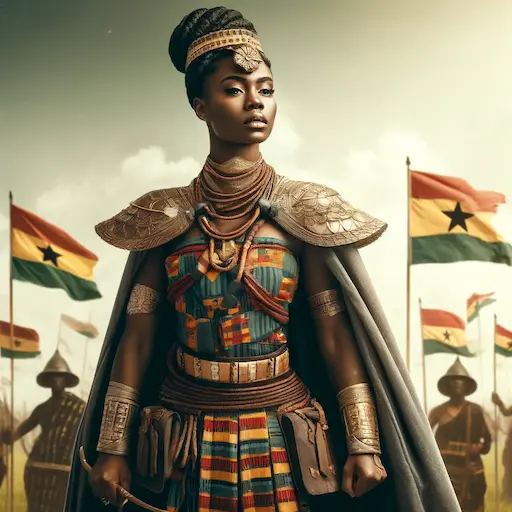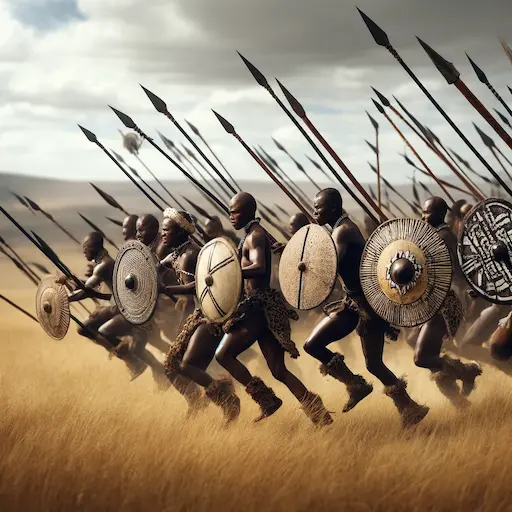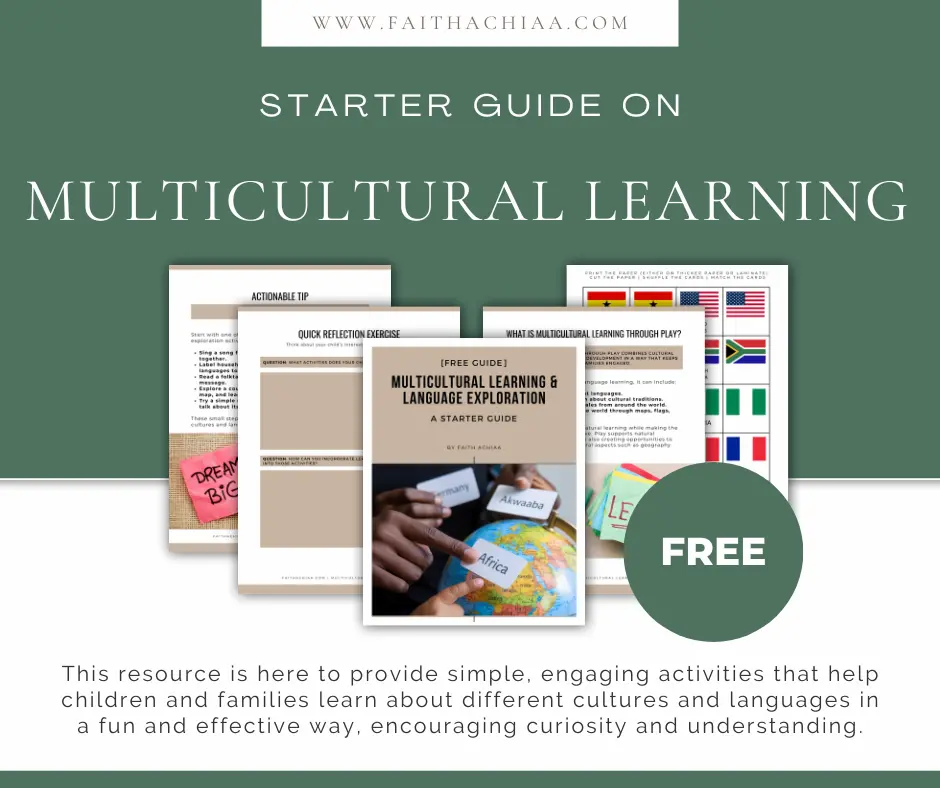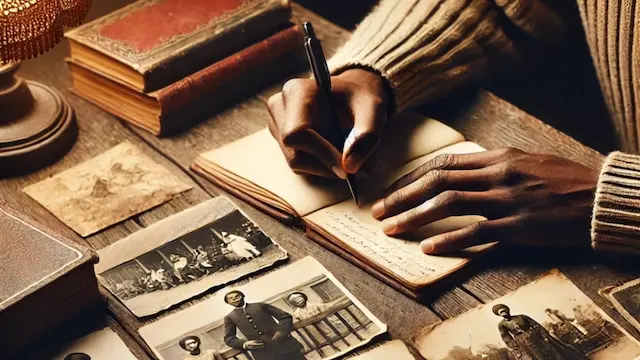Warrior in Different Languages: 130+ Translations Of Courage Across the World

When you think of the word ‘warrior,' what comes to mind? Perhaps it's the disciplined Samurai of Japan, the valiant knights of medieval Europe, or the resilient Ashanti warriors of Ghana, each embodying bravery and strength.
The term ‘warrior' is a universal concept, rich in courage and heroism across cultures.
Curious about the translation of ‘warrior' in different languages? Our boys asked us this question, and together, we went down the rabbit hole – we were in for a real treat.

This led us to explore the translations and the cultural and spiritual significance of the word ‘warrior,' offering a glimpse into the diverse yet unified spirit of humanity.
Ideal for language enthusiasts or anyone fascinated by cultural diversity, let's get into the global narrative of courage that warriors worldwide represent.
The Historical and Cultural Warriors: Valor Across Ages
Throughout history, warriors have played an important role in shaping cultures and societies.
From the Ashanti Warriors of Ghana to the Samurai of Japan, each warrior class has left a lasting impact on their respective cultures.
Here are some of the most notable historical and cultural warriors from around the world.
These warrior names and figures, exude power, courage, and honor, and reflect the virtues and achievements of those who bore them, marking their indelible influence across generations.
Ashanti Warriors (Ghana) – Legacy of Bravery and Resistance
The Ashanti Warriors, central to West Africa’s power in the 17th and 18th centuries, stood for bravery against British colonization in Ghana.
Integral to the Ashanti Kingdom, one of Africa’s most powerful entities, these warriors enhanced the kingdom’s military strength and ensured its safety.
Emphasizing courage, discipline, and loyalty, their culture has influenced generations, keeping the Ashanti spirit alive.

Yaa Asantewaa – The Warrior Queen
Yaa Asantewaa, the Queen Mother of Ejisu, following the Asantehene, is often hailed as a protagonist of the story of Ashanti culture and history.
She led the Ashanti rebellion against British colonialism in the early 20th century. Her leadership during the War of the Golden Stool symbolizes the Ashanti's fight to preserve their sovereignty and cultural identity.
Reflecting her impact, many girl names are inspired by Yaa Asantewaa, a testament to her courage and the enduring spirit of resistance in Ghana.
Ashanti Military Strategies and the Golden Stool
The Golden Stool is central to the Ashanti identity, embodying the nation's unity and power.
The Ashanti's military strategies were key in their resistance against colonization, showcasing advanced organization, tactics, and the effective use of intelligence.
This military capability, combined with the cultural significance of the Golden Stool, fortified the Ashanti resistance and left a lasting impact on their heritage.
Samurai (Japan) – The Way of the Warrior
The Samurai were the warrior class of feudal Japan, known for their discipline, honor, and loyalty.
They were trained in the art of war and were skilled in various weapons such as swords, bows, and spears.
The Samurai were not only famous warriors but also influential in shaping Japanese culture.
They were guided by a code of ethics known as Bushido, which emphasized values such as loyalty, honor, and self-discipline, an exciting story to share.
Zulu Warriors (Africa) – Strategy and Resilience
The Zulu Warriors, led by King Cetshwayo kaMpande, were a powerful force in 19th-century Southern Africa, especially noted for their significant victory against British forces at the Battle of Isandlwana on January 22, 1879.
Known for their innovative military tactics and exceptional resilience, the warrior class played an important role in not only protecting the Zulu Kingdom but also in strengthening its military capacity.
Their strategic skills, seen in disciplined and adaptable battle formations, were essential to the success and expansion of the Zulu nation.

Knights (Medieval Europe) – Chivalry and Conquest
The Knights were the warrior class of medieval Europe, known for their chivalry, honor, and conquests.
They were skilled in various weapons such as swords, lances, and bows. The Knights were guided by a code of ethics known as chivalry, which emphasized values such as courage, and honor.
The Knight class was highly respected and played a crucial role in the success of medieval Europe.
Spartans (Ancient Greece) – Discipline and Strength
The Spartans, a warrior society in ancient Greece, were known for their unmatched discipline and strength.
Training from a young age in warfare, they excelled in using weapons like spears and swords.
Integral to their city-states, the Spartans bolstered military might and ensured community safety, embodying courage, discipline, and loyalty.
Their legendary exploits and values, often celebrated in Greek mythology, continue to inspire admiration and study.
Warrior Attributes and Skills: Beyond the Battlefield
As a warrior, you possess a unique set of attributes and skills that extend beyond the battlefield.
These traits are not only essential for success in combat but also for navigating the challenges of everyday life.
Let's explore some of the key attributes and skills that define a warrior.

The Art of War – Strategy and Mindfulness
One of the most important skills a warrior possesses is the ability to strategize and remain mindful in the face of adversity.
In battle, this means understanding the terrain, the enemy's strengths and weaknesses, and how to best utilize your own resources.
But beyond the battlefield, this skill can be applied to any situation where challenges arise.
To cultivate this skill, a warrior must learn to remain calm and focused even amid chaos.
This requires a deep understanding of oneself and the ability to remain present in the moment.
By practicing mindfulness and developing a strategic mindset, a warrior is better equipped to face any challenge that comes their way.

The Warrior's Honor – Ethics and Philosophy
Another key attribute of a warrior is their commitment to honor, ethics, and philosophy. In battle, this means adhering to a strict code of conduct that prioritizes courage, loyalty, and selflessness. But beyond the battlefield, this code can be applied to all areas of life.
To embody this attribute, a warrior must commit themselves to living a life of integrity and authenticity.
This means being true to oneself and others, even in the face of adversity. By upholding a strong sense of honor and ethics, a warrior can inspire others and create positive change in the world.
The attributes and skills of a warrior extend far beyond the battlefield. By cultivating a strategic mindset and committing oneself to a code of honor and ethics, a warrior is able to navigate the challenges of everyday life with courage and resilience.

Wondering how to introduce your kids to different cultures and languages in a fun, engaging way?
Learning about the world doesn't have to feel like another task – it can be an exciting adventure for the whole family.
The Word Warrior in Different Languages
Warrior is a word that holds different meanings and interpretations across cultures and languages.
In some languages, the word warrior is translated directly as a fighter or soldier, while in others, it is used to describe someone who exhibits bravery, strength, and courage.
Such diversity in usage enriches the definition of ‘warrior,' reflecting its multifaceted nature across global contexts.
Here are some translations of the word warrior in different languages, can you find your own language?
- Afrikaans: Kryger
- Akan (Twi): Ɔkɔfɔ
- Albanian: Luftëtar
- Amharic: ተጋዳላይ (Tägadalay)
- Arabic: محارب (Muḥārib)
- Armenian: զինվոր (Zinvor)
- Azerbaijani: Döyüşçü
- Basque: Gudari
- Belarusian: Ваяр (Vayar)
- Bengali: যোদ্ধা (Joddha)
- Bosnian: Ratnik
- Bulgarian: Воин (Voin)
- Catalan: Guerrer
- Cebuano: Manggugubat
- Chichewa: Wankhondo
- Chinese (Simplified): 战士 (Zhànshì)
- Corsican: Guerrieru
- Croatian: Ratnik
- Czech: Válečník
- Danish: Kriger
- Dutch: Krijger
- English: Warrior
- Esperanto: Militisto
- Estonian: Sõdalane
- Farsi: جنگجو (Jangjoo)
- Filipino: Mandirigma
- Finnish: Soturi
- French: Guerrier
- Galician: Guerreiro
- Georgian: მეომარი (Meomari)
- German: Der Krieger
- Greek: Πολεμιστής (Polemistís)
- Gujarati: યોદ્ધા (Yoddhā)
- Haitian Creole: Gèrye
- Hausa: Mayaƙi
- Hawaiian: Koa
- Hebrew: לוֹחֵם (Lohem)
- Hindi: योद्धा (Yoddhā)
- Hmong: Tub rog
- Hungarian: Harcos
- Icelandic: Kappi
- Igbo: Dike
- Indonesian: Pejuang
- Irish: Laoch
- Italian: Guerriero
- Japanese: 戦士 (Senshi)
- Javanese: Prajurit
- Kannada: ಯೋಧ (Yōdha)
- Kazakh: Жауынгер (Jauınger)
- Khmer: វីរបុរស (Viraboras)
- Korean: 전사 (Jeonsa)
- Kurdish (Kurmanji): Pehlivan
- Kyrgyz: Согушкер (Soguşker)
- Lao: ຊົນກະສິກຳ (Son kasikam)
- Latvian: Cīnītājs
- Lithuanian: Karys
- Luxembourgish: Krieger
- Macedonian: Воин (Voin)
- Malagasy: Mpiady
- Malay: Pejuang
- Malayalam: യോദ്ധാവ് (Yoddhāv)
- Maltese: Gwerrier
- Maori: Toa
- Marathi: योद्धा (Yoddhā)
- Mongolian: Баатар (Baatar)
- Myanmar (Burmese): စစ်သည် (Sacsithui)
- Nepali: योद्धा (Yoddhā)
- Norwegian: Kriger
- Pashto: جنګیالی (Jangyālai)
- Persian: جنگجو (Jangju)
- Polish: Wojownik
- Portuguese: Guerreiro
- Punjabi: ਯੋਧਾ (Yōdhā)
- Romanian: Războinic
- Russian: Воин (Voin)
- Samoan: Toa
- Scots Gaelic: Gaisgeach
- Serbian: Ратник (Ratnik)
- Sesotho: Mohlabani
- Shona: Muroyi
- Sindhi: جنگجو (Jangju)
- Sinhala: රණශූරයා (Raṇaśūrayā)
- Slovak: Bojovník
- Slovenian: Bojevnik
- Somali: Dagaalyahan
- Spanish: Guerrero
- Sundanese: Satria
- Swahili: Mpiganaji
- Swedish: Krigare
- Tajik: Ҷанговар (Jangovar)
- Tamil: போர்வீரன் (Pōrvīraṉ)
- Telugu: యోధుడు (Yōdhuḍu)
- Thai: นักรบ (Nák rób)
- Turkish: Savaşçı
- Ukrainian: Воїн (Voyin)
- Urdu: جنگجو (Jangju)
- Uzbek: Jangchi
- Vietnamese: Chiến binh
- Welsh: Rhyfelwr
- Xhosa: Isilwanyana
- Yiddish: קעמפער (Kemfer)
- Yoruba: Jagunjagun
- Zulu: Iqhawe
In Native American languages, distinct terms exist for the translation of the word “warrior.”
The Ojibwe say “ogichidaa” or “ogichidaakwe” for male and female warriors, respectively, emphasizing their strength and commitment.
The Lakota use “akicita” to denote warriors, underscoring their protector role. These terms reflect the deep-seated values of bravery and honor within their cultures.
The translations of warrior hold great significance in many native languages, representing strength, courage, and resilience.
The Modern Metaphor: Warriors Among Us
In today's society, the term “warrior” has taken on a new meaning. It is no longer just associated with ancient battles and heroic feats and the values of the old warrior culture, but also with everyday individuals who display courage, strength, and resilience in various aspects of their lives.
Sports and Competition – The Contemporary Arena

Athletes are frequently called warriors for their physical strength, mental toughness, and determination.
Sports, especially major events like the Super Bowl, play a significant role in American culture, highlighting the resilience and competitive spirit of players.
Overcoming Personal Challenges – The Inner Warrior
Being a warrior is not just about physical strength and competition. It's also about overcoming personal challenges and facing adversity with courage and resilience.
People who battle illnesses, disabilities, PTSD from serving in the military, or mental health issues are often referred to as warriors, as they display incredible strength and determination in the face of adversity.
Whether it's a famous warrior on the sports field or in everyday life, individuals who display these qualities are seen as modern-day warriors, inspiring others to face their own challenges with strength and determination.

The Spiritual Warrior: Battles of the Soul
As a spiritual warrior, you engage in battles of the soul, fighting against negative thoughts, emotions, and behaviors that hold you back from living your best life.
This battle requires courage, perseverance, and a deep understanding of yourself. 2 Chronicles 20:15 tells us “.. the battle is not yours, but God’s”, but we are to be prayer warriors and intercede and bring our requests to God.

Peaceful Warriors – The Fight for Inner Peace
One of the most important battles for a spiritual warrior involves fighting for inner peace and advocating or interceding for the well-being of their family and spouse, especially in situations needing healing and deliverance or praying for certain results to manifest in your life.
This battle requires letting go of negative emotions like anger, fear, and resentment, and cultivating positive feelings such as love, compassion, and gratitude.
It's about achieving personal harmony while also addressing and overcoming challenges in personal and family life through spiritual strength and faith.
Warrior Wisdom – Lessons for Life's Battles
The battles of the spiritual warrior are not limited to the realm of the soul. They also extend to the physical world, where we face challenges and obstacles that test our strength, courage, and resilience.
In these battles, spiritual warriors draw on the wisdom of the Word. They understand that every battle is an opportunity for growth and learning, and they approach each challenge with an open mind and a willingness to learn.
Through their battles, spiritual warriors learn valuable lessons that can be applied to all areas of life.

They develop a deep sense of self-awareness, resilience, and inner strength that allows them to navigate life's challenges with grace and ease.
Some view warriors as protectors, while others see them as conquerors. However, one common thread that runs through all of these interpretations is the idea of courage and strength, echoing the warrior ethos.
Many of these cultures have created fantastic symbols of nature to represent the warrior spirit.
For example, the eagle is a powerful symbol of strength and freedom in Native American culture, while the lion represents courage and bravery in African culture, reflecting generational succession in embodying these values.
Overall, this global weaving of courage and strength shows us that the concept of a warrior is universal.

Whether a samurai in Japan or a Viking in Scandinavia, the qualities of bravery, strength, and honor are valued in all cultures, supporting military capacity and the continuity of the warrior ethos across generations.
By exploring the different interpretations of the word “warrior,” we gain a greater understanding of the human experience and the importance of courage in our lives.
IF THIS POST RESONATES WITH YOU, CONSIDER EXPLORING MORE OF OUR WEBSITE AND PINNING ONE OF THE IMAGES BELOW!
Thank you for your support.








